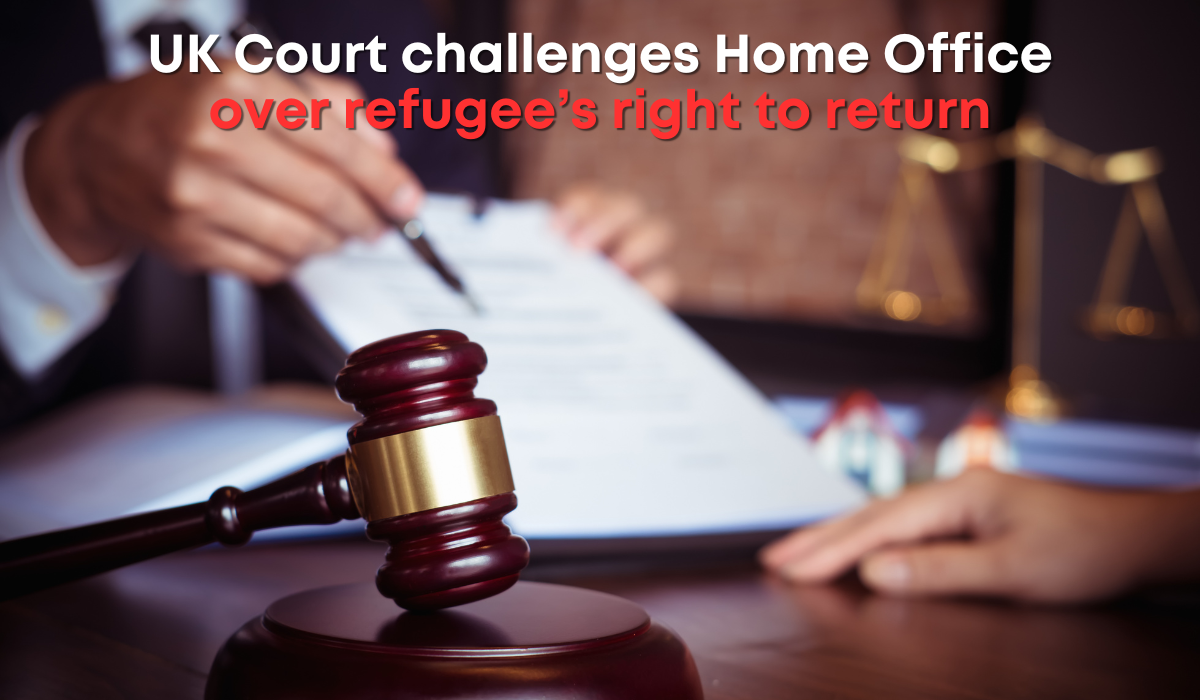The Court of Appeal has ruled in favour of a Somali refugee who was unable to return to the UK due to a Home Office error. This landmark case, known as Ali v Upper Tribunal (Immigration and Asylum Chamber) & Anor [2024] EWCA Civ 372, underscores the complexities of immigration law and the challenges faced by those with indefinite leave to remain.
Background of the case
The case centers around a Somali national who arrived in the UK as a child in April 2000 to join his father under refugee family reunion provisions. In 2004, he and his family were granted indefinite leave to remain. He traveled to Djibouti in 2008 for health reasons and subsequently lost his travel document. Efforts to obtain a new document from the British Embassy in Ethiopia were fruitless due to the Home Office’s failure to record his immigration status accurately.
After spending several years in Ethiopia, the appellant’s indefinite leave to remain lapsed in 2010 as he had been outside the UK for over two years. His subsequent application for entry clearance in 2015 was refused due to insufficient evidence of his indefinite leave status. This refusal sparked a prolonged legal battle, culminating in a series of appeals and, eventually, a review by the Court of Appeal.
Judicial Review and Appeal
The Court of Appeal’s decision addressed the failure of lower tribunals to appropriately assess the appellant’s Article 8 rights under the European Convention on Human Rights, concerning his right to private and family life. The Court criticized the misinterpretation of previous legal precedents and emphasized that settled migrants, like the appellant, who have previously established a life in the UK, are distinct from those seeking entry to develop private life ties.
Implications of the Ruling
This ruling highlights several critical issues:
- Article 8 rights: The Court confirmed that the right to respect for private life is engaged in entry clearance cases, especially for those with established ties in the UK.
- Home Office accountability: The case underscores the consequences of administrative errors and the importance of maintaining accurate immigration records.
- Procedural fairness: The decision calls for a reevaluation of how cases involving prolonged absences and lost documents are handled, ensuring fair treatment and consideration of personal circumstances.
What is going to happen now?
While the appellant has now been granted the right to appeal to the Upper Tribunal, the ordeal underscores the need for more humane handling of similar cases by the Home Office. The Home Secretary is urged to concede the matter promptly and offer compensation for the hardships endured due to bureaucratic oversights.
For more insights and legal assistance on immigration matters, contact GigaLegal Solicitors, where expert advice is just a consultation away.
Get in touch: For a comprehensive understanding of your options or queries on UK immigration matters, contact GigaLegal Solicitors at 02074067654 or click here to book a no-obligation consultation with an immigration expert.


